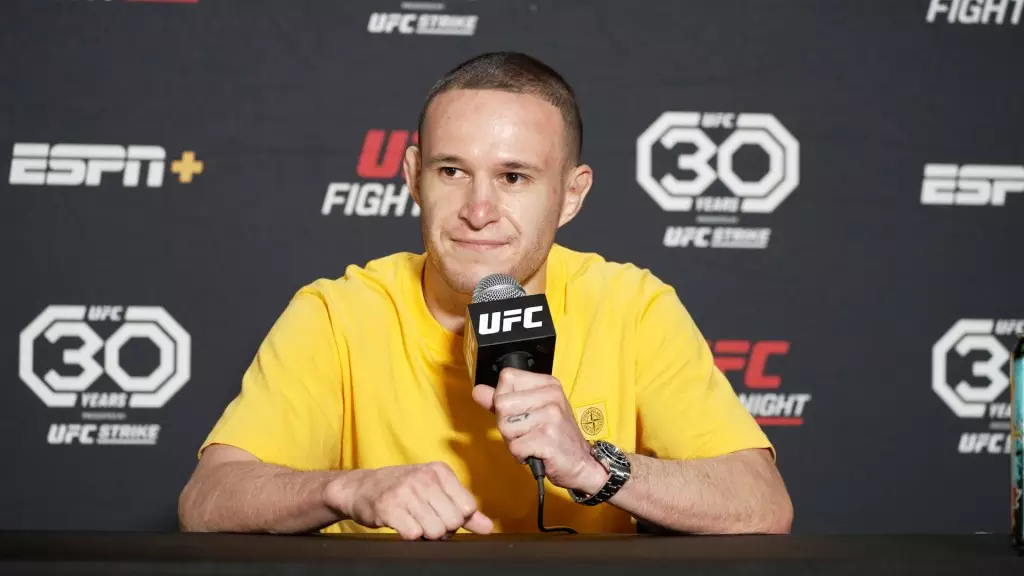The announcement of Kai Asakura’s UFC title shot has sparked a wave of discontent from established fighters within the flyweight division. The former RIZIN champion Asakura is set to challenge the current champion Alexandre Pantoja in the co-main event of UFC 310, scheduled for December 7 at the T-Mobile Arena in Las Vegas. While much anticipation surrounds this matchup, other fighters, particularly top contender Kai Kara-France, express skepticism regarding Asakura’s quick ascension to a title bout.
Kara-France, a seasoned fighter with a record of 25 wins and 11 losses, has been vocal about his belief that Asakura does not deserve this immediate opportunity. In an interview with Sky Sports NZ, he articulated that fighters should earn their title shots through demonstrated performance in the UFC. Following a significant win against Steve Erceg at UFC 305, Kara-France had hoped to secure a title shot himself. However, the announcement of Asakura receiving a title shot has overshadowed his own success, leading to a sense of frustration.
Kara-France advocates for a merit-based approach to title shots, emphasizing that fighters should earn their positions through hard work and consistency within the organization. He explained, “You’ve got to at least show your worth or do something for guys who have been grinding for years in the UFC division.” This sentiment echoes a broader concern among athletes in various combat sports about the integrity of ranking systems and title opportunities being afforded to newcomers without a track record in the specific organization.
The decision to grant Asakura a title shot without prior UFC fights raises questions about the promotional strategies of the UFC. By bringing in an internationally recognized fighter who has been a champion in another organization, the UFC can attract attention to its flyweight division. This brings value, especially in terms of marketing and viewership. Yet, does this strategy alienate the fighters who have dedicated years to their careers within the organization? The controversy stirred up by Asakura’s title shot indeed risks creating a precedent where merit is overshadowed by marketability.
Kara-France, while critical of Asakura’s pathway to the title, acknowledges the potential publicity that this fight could generate for the flyweight division. He stated, “If it’s going to bring in more attention… a bit of controversy – Does this guy deserve it? – yeah, he can go out there and prove it.” This perspective highlights the duality of the situation; while he is frustrated, there is an underlying understanding that the sport also thrives on drama and narrative, elements that can draw in casual fans.
This situation reflects a broader issue within mixed martial arts: the balance between sportsmanship, merit, and promotion. As the sport evolves, maintaining respect for the meritocratic structure while also acknowledging the business side of the sport poses a constant challenge for promoters and fighters alike. As for Kara-France, the road ahead may require him to continue proving his worth through formidable performances, all while navigating the frustrations presented by promotional decisions that do not seem to align with the traditional paths of fighters within the UFC.

